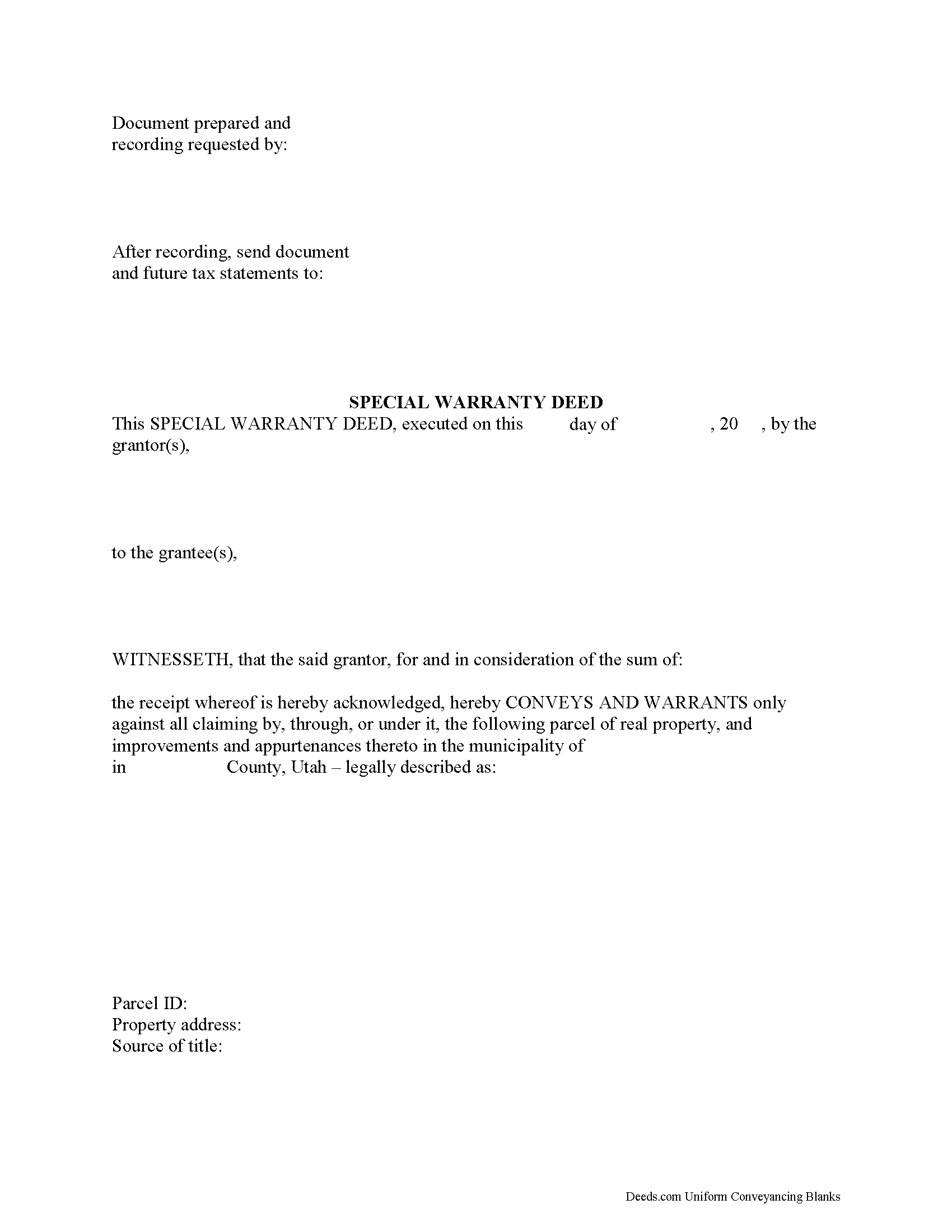Download Utah Special Warranty Deed Legal Forms

Utah Special Warranty Deed Overview

A special warranty deed can be used in Utah to convey title to real property. A duly executed special warranty deed will have the effect of a conveyance in fee simple to the grantee, the grantee's heirs, and assigns of the property named in the special warranty deed, with all the appurtenances, rights, and privileges belonging to the granted property. A special warranty deed in Utah contains covenants from the grantor that (a) the granted property is free from all encumbrances made by the grantor, and (b) the grantor, the grantor's heirs, and personal representatives will forever warrant and defend the title of the property in the grantee, the grantee's heirs, and assigns against any lawful claim and demand of the grantor and any person claiming or to claim by, through, or under the grantor. Any exceptions to the special warranty covenants can be briefly inserted in the deed after the description of the land (57-1-12.5). A special warranty deed offers less protection to the buyer than a general warranty deed.
A special warranty deed must be signed by the grantor and notarized or proved in order to be eligible for recording by a county recorder in Utah. Notarial acts in this state can be performed by a judge or court clerk having seal, a notary public, or a county clerk or county recorder. Notarial acts can also be performed in another state by any of the officers listed in 57-2a-3 of the Utah Revised Statutes or by a person authorized to perform notarial acts in the state where the notarial act is performed (57-2a-3). A special warranty deed must be accompanied by a certificate of acknowledgment or proof of execution that is signed by the officer taking the acknowledgment to entitle it to be recorded in Utah (57-3-101). The proof of the execution of a deed can also be made by a subscribing witness (57-2-10).
An unrecorded special warranty deed will be valid between the parties to the deed and those who have notice of it (57-3-102). However, the unrecorded deed will be void as against a subsequent purchaser of the same property, or a portion of it, if the subsequent purchaser purchased the property in good faith and the subsequent purchaser's document was recorded first (57-3-103). A special warranty deed that has been executed, acknowledged or proved, and certified in a manner consistent with the Utah Statutes will, from the time it is recorded with the appropriate county recorder, impart constructive notice to all persons of the contents of the deed. Real estate documents should be recorded in the county recorder's office in the county where the property is located.
(Utah SWD Package includes form, guidelines, and completed example)